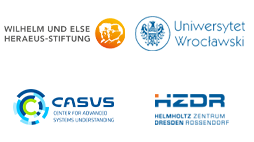Speaker
Description
Understanding the composition of Earth's core and mantle is a major challenge in geoscience and materials science. The core is primarily made of iron, but its density is known to be slightly lower than pure iron. Hydrogen contributes to this density deficit, leading to significant interest in the properties and structure of iron hydrides under high pressure.
Previous studies have shown that the dhcp phase of FeH remains stable at
lower pressures (10-40 GPa) but undergoes phase transitions to hcp and fcc phases at higher pressures. This study focuses on a theoretical exploration of the potential energy surfaces (PESs) of FeH under varying pressure conditions. The objective is to demonstrate the effectiveness of automated and systematic methods for training and validating transferable machine-learned interatomic potential (ML-IAP) using global
optimization techniques. Utilizing this potential, which significantly reduces computational costs, the phase diagram of the stoichiometric Fe-H system is analyzed across a range of pressures.
To achieve this, we utilize the PyFLAME code to construct a highly transferable ML-IAP. With this accurate potential, the PESs of bulk FeH structures are systematically investigated through global sampling using the minima hopping method. This comprehensive exploration enables the prediction of stable and metastable iron hydrides from 0 to 100 GPa. Density functional theory calculations are conducted to refine the predicted structures and evaluate their dynamical stability.
The findings of this study reveal a wide range of novel low-energy polymorphs of FeH at each pressure level, alongside the recovery of well-known structures in the literature.

